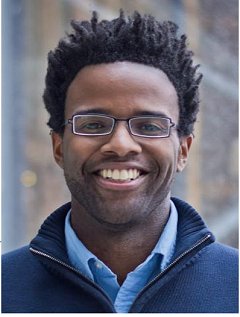Approximate Computing: it's better than good, it's good enough!
Many modern applications implement large-scale computations (e.g., big data analytics) in which there is a natural trade-off between the quality of the results that the computation produces and the performance and cost of executing the computation.
Exploiting this fact, researchers have recently developed a variety of new techniques that either 1) enable an application to execute through existing hardware and software errors or 2) augment the hardware/software platform to substitute or skip portions of the application’s computation. In this talk, I will present how these techniques can improve program resilience, performance, and energy-consumption while still preserving critical application-level correctness properties.
Michael Carbin is a Ph.D. Candidate in Electrical Engineering and Computer Science at MIT. His interests include the design of programming systems that deliver improved performance and resilience by incorporating approximate computing and self-healing.
His work on program analysis at Stanford University as an undergraduate received an award for Best Computer Science Undergraduate Honors Thesis. As a graduate student, he has received the MIT Lemelson Presidential and Microsoft Research Graduate Fellowships. His recent research on verifying the reliability of programs that execute on unreliable hardware received a best paper award at OOPSLA 2013.
Tue 14 JunDisplayed time zone: Tijuana, Baja California change
10:30 - 12:00 | |||
10:30 25mTalk | Fighting Software Inefficiency Through Automated Bug Detection PLMW@PLDI Shan Lu University of Chicago Media Attached | ||
10:55 25mTalk | The Truth, the Whole Truth, and Nothing but the Truth: A Pragmatic Guide to Assessing Empirical Evaluations PLMW@PLDI Steve Blackburn Australian National University Media Attached | ||
11:20 25mTalk | Approximate Computing: it's better than good, it's good enough! PLMW@PLDI Michael Carbin MIT Media Attached | ||
